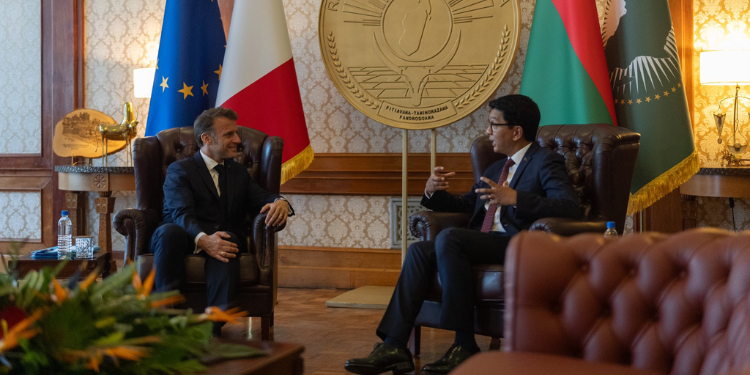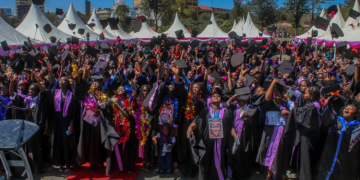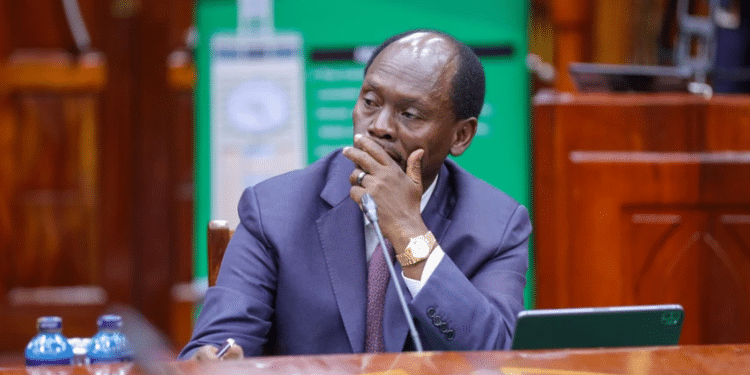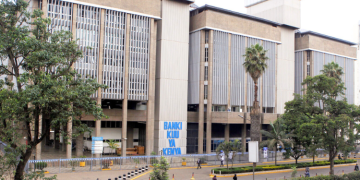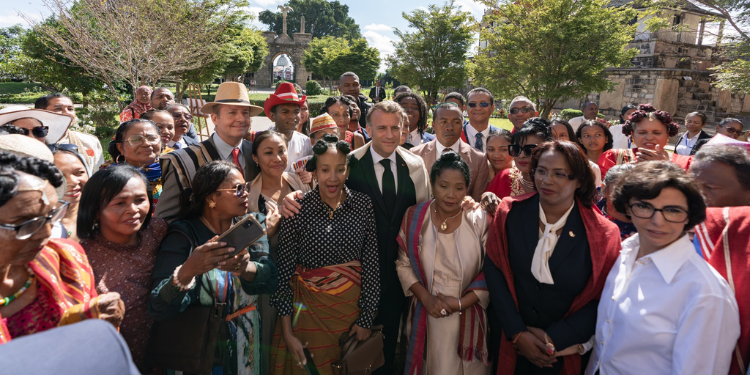France has officially returned three human skulls taken during its colonial rule to Madagascar, including one believed to belong to a 19th-century Malagasy king who was executed by French troops.
The remains, thought to include the skull of King Toera and two other individuals from the Sakalava ethnic group, were handed over on Tuesday, August 26, during a formal ceremony held at the French Ministry of Culture in Paris.
King Toera was reportedly beheaded in 1897 during a violent colonial campaign, and his skull was transported to France as a war trophy. It eventually became part of the collections of the National Museum of Natural History in Paris, where it remained for over a century.
French Culture Minister Rachida Dati described the return as a “historic” moment, acknowledging that the remains had been acquired “in circumstances that clearly violated human dignity” and within the broader context of colonial violence.
“These skulls entered the national collections in circumstances that clearly violated human dignity and in a context of colonial violence,” said Rachida Dati.
On her part, Madagascar’s Culture Minister, Volamiranty Donna Mara, welcomed the restitution, calling it an “immensely significant gesture.”
She added, “Their absence has been, for more than a century, 128 years, an open wound in the heart of our island.”
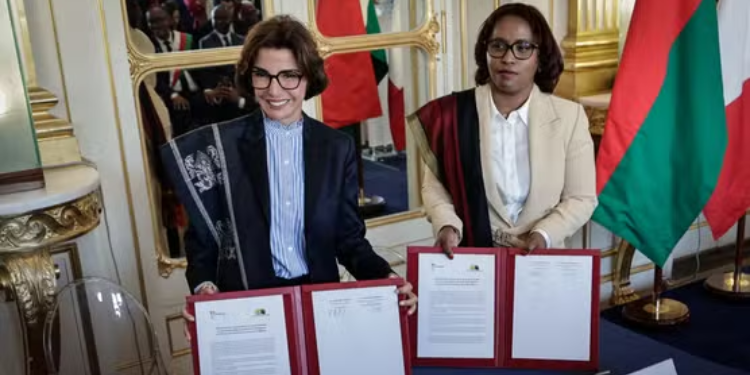
This marks the first restitution under a 2023 French law that facilitates the return of human remains from national collections to their countries of origin.
Also Read: UK and France Pledges Won’t Stop Bombing Gaza – But Donald Trump or Israel’s Military Could
Skulls linked to King Toera of Madagascar
A joint scientific committee confirmed that the three skulls were of Sakalava origin, although only one is believed—though not conclusively—to be King Toera’s, according to Dati.
The skulls are expected to arrive back in Madagascar on Sunday, symbolizing a critical step in France’s broader efforts to address its colonial legacy.
In August 1897, French colonial forces launched a violent campaign to assert control over the Menabé kingdom of the Sakalava people in western Madagascar, resulting in the massacre of a local army. During the assault, King Toera was killed and beheaded, with his severed head transported to Paris and stored in the archives of the National Museum of Natural History.
Almost 130 years later, sustained efforts by the late king’s descendants and the Madagascar government have led to the skull’s repatriation. Although DNA analysis conducted in past years failed to conclusively verify the identity of the remains, a traditional Sakalava spirit medium later affirmed that the skull did, in fact, belong to King Toera.
This is not the first time France has returned human remains taken during the colonial era. One of the most notable cases involved Sarah Baartman, the South African woman derogatorily known as the “Hottentot Venus,” whose remains were returned to South Africa in 2012 after years of public exhibition in Europe.
Also Read: From DJ Decks to Presidency: The Story of Madagascar’s President Andry Rajoelina
However, King Toera’s skull marks the first restitution carried out under a new French law, passed to simplify and accelerate the return of human remains from national collections. According to estimates, the National Museum of Natural History alone holds over 20,000 human remains taken from across the globe—most acquired under the pretext of scientific study during the colonial period.
This act of restitution is part of a wider French initiative to confront its history of colonial repression across Africa. French President Emmanuel Macron has taken several steps in recent years to address these historical injustices.
Macron acknowledges French colonial repression in Cameroon
In a letter to Cameroonian President Paul Biya, made public on August 12, Macron openly acknowledged the “repressive violence” carried out by French forces in Cameroon during the 1950s, as the country fought for its independence from colonial rule.
The letter comes in the wake of an official report commissioned by France in 2022, which documented the use of mass forced displacement, the operation of internment camps, and French support for violent militias aimed at suppressing pro-independence movements in Cameroon.
Follow our WhatsApp Channel and X Account for real-time news updates.
